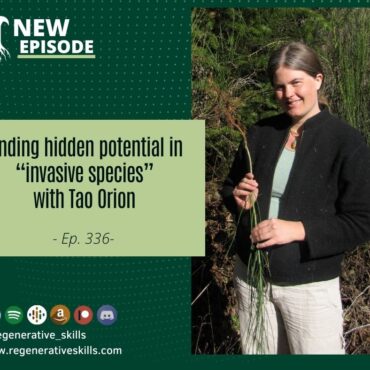
Finding the hidden potential in “invasive” species, with Tao Orion
I’m really lucky that I have been collaborating with book publishers since the early days of this podcast. It gives me access to all of the books from the authors […]
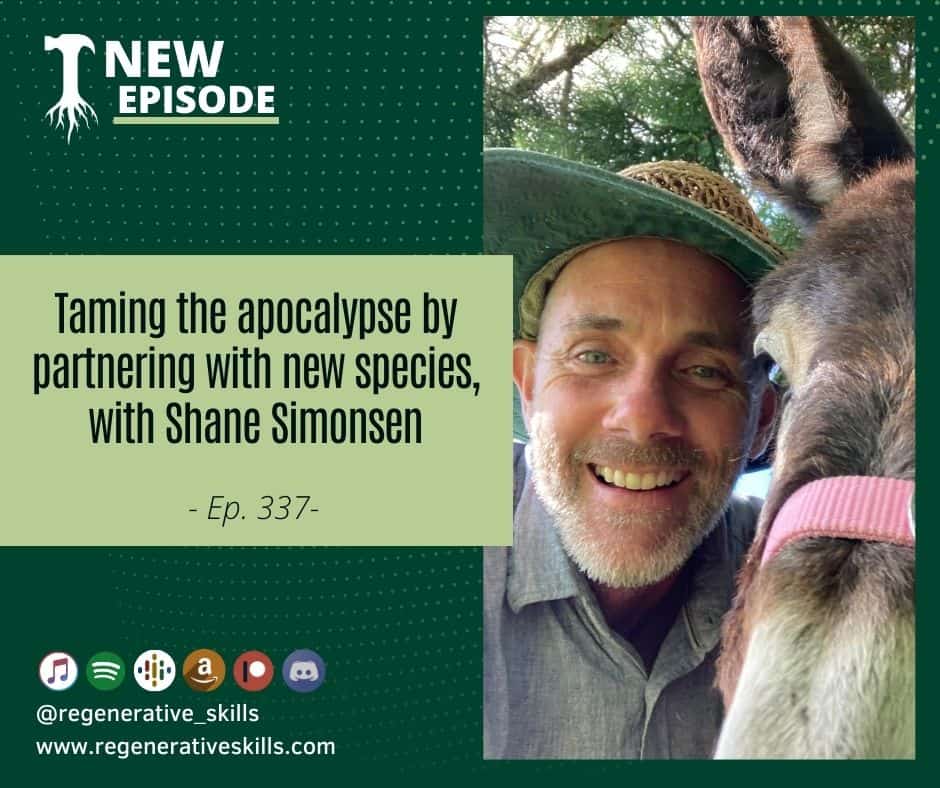

So much of what inspires me and that I hope to highlight on this show comes from an ever growing awareness of the incredible superpowers that humans have that emerge from our relationship with the natural world around us. Our senses coupled with adaptability, the skill of collaboration and the inventiveness of our creativity have allowed humans to find a niche in almost every major biome on this planet. Whether it’s forming a symbiotic relationship with the semi-wild reindeer of the arctic circle, or coastal people of the tropics evolving superior vision underwater, or our ability to communicate with wild species to understand imminent dangers or changes in the weather, or polynesian sailors being able to navigate through open ocean by sensing the patterns in the waves. Everywhere that humans have made their home, they’ve developed unique ways of understanding, adapting to, and developing deep relationships with the forms of life around them.
One of the most outstanding of our collective abilities is being able to manipulate the genes and evolution of the species around us. We’ve done this with animal and plant domestication, breeding, and propagation, and more recently, with advanced technological tools. In past episodes I’ve explored the topic of landrace gardening, low tech plant breeding, and adaptation to your place and context. This is an idea that has captivated me in the last couple years and is informing a major part of the development of my own farm.
Today I want to step out of the details of landrace plant breeding to try and understand the broader potential of what partnering with the evolutionary trajectory of selected species in our sphere of influence could look like and the mind bending possibilities that hide in that way of interacting with the environment around us.
Here to explore this concept and give ideas based on his own experiences is Shane Simionsen. Shane is a long-time contributor to this podcast so I’ll keep his introduction short and recommend you go back to some previous episodes to hear more of his back story and work, but briefly, Shane is an Australian experimental farmer developing zero input agricultural systems and writing biological science fiction.
In this conversation, we’ll be taking a look at what Shane sees as the essential moment in our developmental journey as a species to make use of the temporary ease and convenience of global trade to do the hard work of accelerating our close partnerships with the plants, animals, bacteria, and fungi around us. We take a look at how people from the dawn of our evolution have been doing this and how modern technology can play a role in bringing these cooperative relationships to new heights.
We also go into the steps and actions that anyone can take to help create climate adapted food crops and maybe even tackle the next novel domestication project. Shane gives great examples of how he’s running his own tests and experiments on his farm in Queensland, AU and shares his learnings, failures and successes to help set expectations for what a landrace or breeding project entails.
His new book “Taming the Apocalypse” is now available in digital and audiobook formats through subscription to his blog on Substack
Links:
https://zeroinputagriculture.substack.com/

I’m really lucky that I have been collaborating with book publishers since the early days of this podcast. It gives me access to all of the books from the authors […]
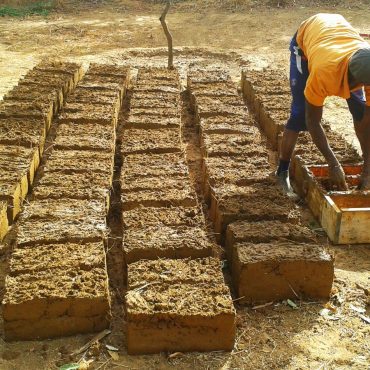
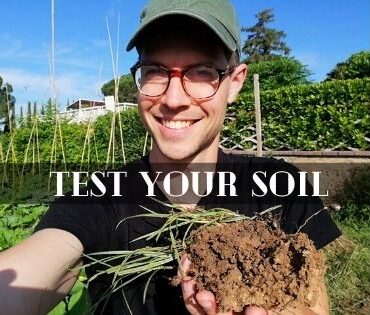
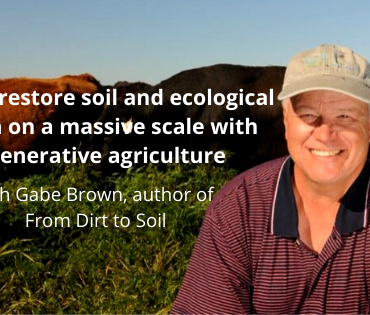
Copyright Regenerative Skills 2021
Post comments
This post currently has no comments.